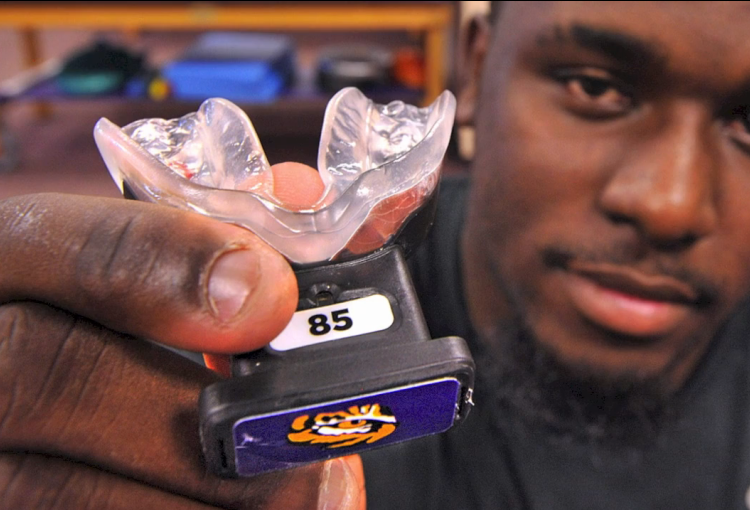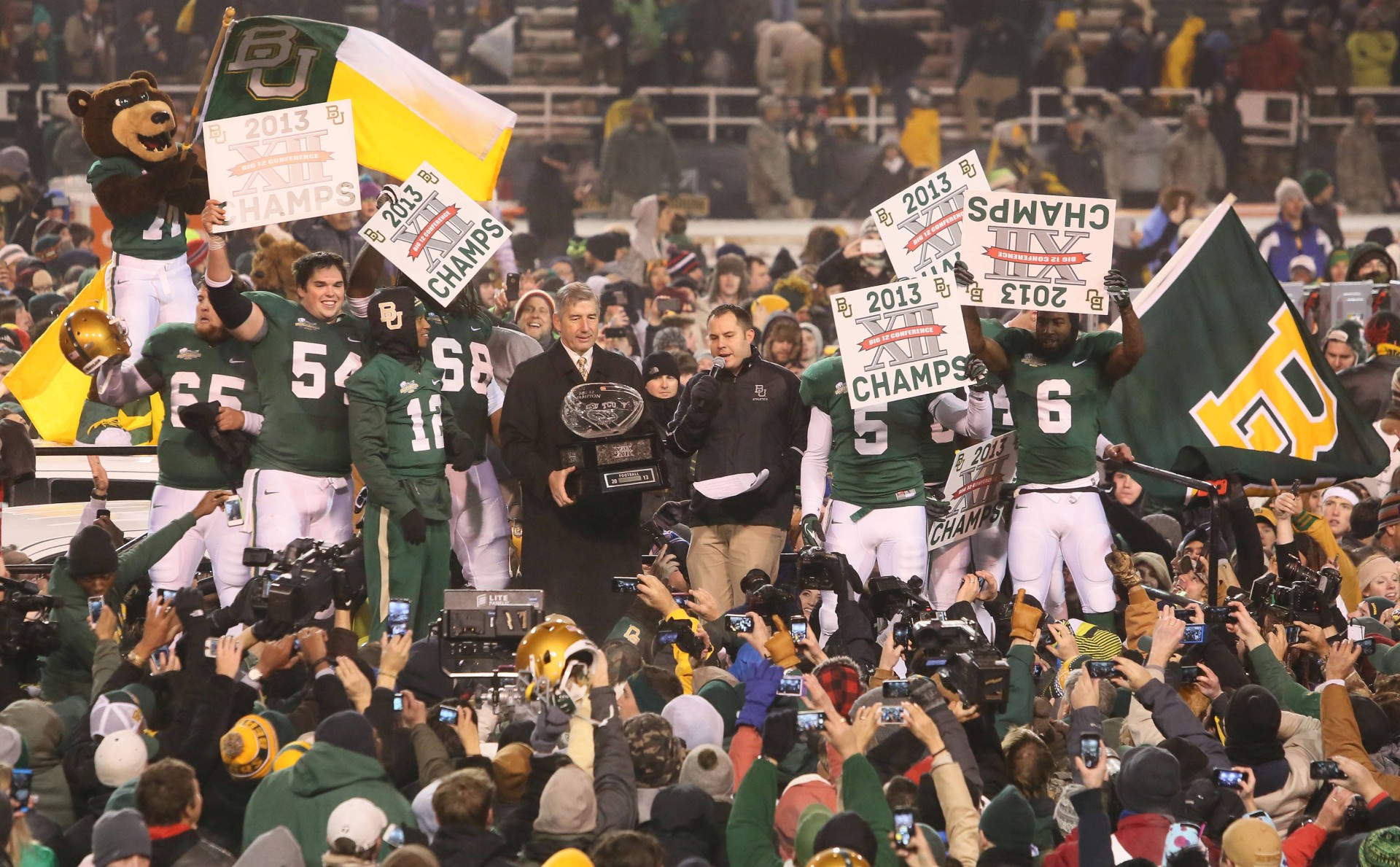Colleges like LSU are helping tech companies discover how to monitor and diagnose concussions more efficiently using mouthguards with computer chips.
How concussions are treated has increasingly become a hot topic and there’s finally a football program being proactive about the issue.
Earlier in the 2014 season, LSU partnered with Seattle-based company i1 Biometrics to outfit players with specialized mouthguards that measure head impacts during practice and games.
From Geek Wire:
A tiny chip inside the mouthguard — along with an accelerometer, gyroscope, battery, and antennas — helps show the severity and location of impact to a player’s head, with all the data sent in real-time to a handheld device used by trainers on the sidelines. The goal is to help LSU and other teams better assess the severity of potential concussions that players can endure on the field after big hits.
The NFL, colleges and youth football leagues all over the country have caught flack for downplaying the seriousness of concussion related symptoms. While some have tried helmet concussion monitors, the Vector MouthGuard monitors a great deal of information and could shed light on players who suffer several sub-concussions, which add up over time but aren’t as strictly monitored as one huge blow during a game.
i1 Biometrics CEO Jesse Harper said in a statement ““A significant struggle faced by coaches and trainers today is centered around knowing the severity and location of head impact on the field of play. The Vector MouthGuard with ESP Chip Technology is engineered to reduce the guesswork so that coaches and trainers have accurate and timely data to help make proper decisions for their student athletes.”
LSU linebacker Travis Dickson, one of 20 players that’s been outfitted with the device, said “You realize how hard your head hits the turf sometimes…I went up for a ball and came down on my head, and they showed it [the data] to me. They said it was a pretty good one.”
That “pretty good one” was a force that amounted to 25-Gs, which based on the data, is average for every hit a linebacker takes.
Over time, the hits add up and what this mouthguard aims to do is provide data on all players to a trained medical staff rather than a couple people on the sidelines asking questions and hoping for a clear answer from a possibly concussed player.
As the program continues, more and more information will start flowing in but the results have been so encouraging that i1 Biometrics has started marketing the findings.
While we’re only scratching the surface of what benefits could come from this data, it’s great to see programs like LSU take the lead in embracing technology in concussion monitoring.
Here’s a video with more insight on the program:
This article originally appeared on Gamedayr.






